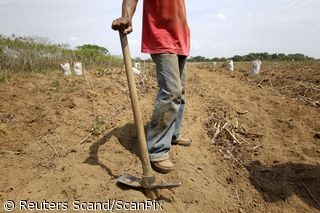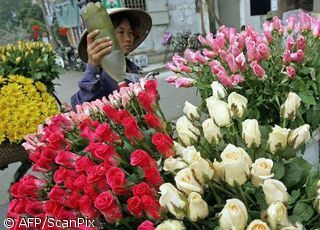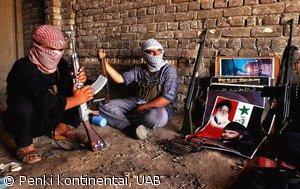The success of future services will rely on building customer confidence.
Published:
27 March 2001 y., Tuesday
Many leading companies with an interest in the field have formed an alliance called Radicchio. The aim is to produce a standard for cross-platform, end-to-end encryption (the translation of data into a code that requires a secret key or password) for security. Known as PKI (Public Key Infrastructure), it comprises a two-part data encryption/ decryption key. One part is available for distribution to companies supplying services, while the other is kept privately by the user, much like the PIN number for a credit card.
Mike Walker, chief scientist for Vodafone, chairman of the 3GPP (Third Generation Partnership Project – the standardisation forum for 3G mobile systems) Working Group SA3 (Security) and a member of the Radicchio board says that PKI is vital to ensure that mobile e-commerce does not suffer from the same degree of distrust as has fixed-access Internet trading.
Other solutions do exist for these technologies. WAP has a built-in security feature, but it only encrypts data between the handset and the gateway to the Internet. This means that any data sent beyond this point could be read by anyone with the means to intercept it. Some companies, in partnership with banks and traders, have set up Virtual Private Networks (VPNs), so that customers can carry out secure transactions and pass sensitive data without using the public part of the World Wide Web. However, the service is only available from those companies that have signed up with a VPN. This may be fine for banks and their customers, but in the long run it will not deliver the freedom to trade with whomever one wishes on the public Web.
Šaltinis:
cebitnews.com
Copying, publishing, announcing any information from the News.lt portal without written permission of News.lt editorial office is prohibited.
The most popular articles
 EU animal welfare rules must be more rigorously enforced, with more inspections and effective penalties, said the Agriculture Committee on Wednesday.
more »
EU animal welfare rules must be more rigorously enforced, with more inspections and effective penalties, said the Agriculture Committee on Wednesday.
more »
 Fifty-three year old Rasima collects dirt everyday from a paddy field in Indonesia’s east Java province, turning it into a snack made entirely from soil, called "ampo."
more »
Fifty-three year old Rasima collects dirt everyday from a paddy field in Indonesia’s east Java province, turning it into a snack made entirely from soil, called "ampo."
more »
 At the moment an Argentinian working for a French company in Spain can't travel to France for a meeting on his long-term visa.
more »
At the moment an Argentinian working for a French company in Spain can't travel to France for a meeting on his long-term visa.
more »
 An EU-wide strategy is needed to combat violence against women, which must be recognised as a crime, said participants in a European Parliament public hearing with national parliaments and civil society representatives, held on Tuesday to mark International Women's Day.
more »
An EU-wide strategy is needed to combat violence against women, which must be recognised as a crime, said participants in a European Parliament public hearing with national parliaments and civil society representatives, held on Tuesday to mark International Women's Day.
more »
 You know its Tet in Vietnam when Peach and Kumquat orange trees decorate every home, shop and public establishment.
more »
You know its Tet in Vietnam when Peach and Kumquat orange trees decorate every home, shop and public establishment.
more »
 A surveyor has set up his tripod and instruments under a hot tropical sun to measure plots of land in a village where the Dac Kray minority community were settled four years ago.
more »
A surveyor has set up his tripod and instruments under a hot tropical sun to measure plots of land in a village where the Dac Kray minority community were settled four years ago.
more »
 Japanese men are answering the call of Valentine s Day a month late.
more »
Japanese men are answering the call of Valentine s Day a month late.
more »
 In three urgent resolutions adopted on Thursday, Parliament urges Hamas to release kidnapped Israeli soldier Gilad Shalit, deplores the escalating criminal violence in Mexico and calls on South Korea to scrap the death penalty.
more »
In three urgent resolutions adopted on Thursday, Parliament urges Hamas to release kidnapped Israeli soldier Gilad Shalit, deplores the escalating criminal violence in Mexico and calls on South Korea to scrap the death penalty.
more »
 The plight of Europe's 10 million Roma population will fall under the spotlight Tuesday afternoon when MEPs discuss an upcoming Roman summit.
more »
The plight of Europe's 10 million Roma population will fall under the spotlight Tuesday afternoon when MEPs discuss an upcoming Roman summit.
more »
 EU Employment and Social Affairs Ministers have today adopted a Directive to prevent injuries and infections to healthcare workers from sharp objects such as needle sticks – one of the most serious health and safety threats in European workplaces and estimated to cause 1 million injuries each year.
more »
EU Employment and Social Affairs Ministers have today adopted a Directive to prevent injuries and infections to healthcare workers from sharp objects such as needle sticks – one of the most serious health and safety threats in European workplaces and estimated to cause 1 million injuries each year.
more »